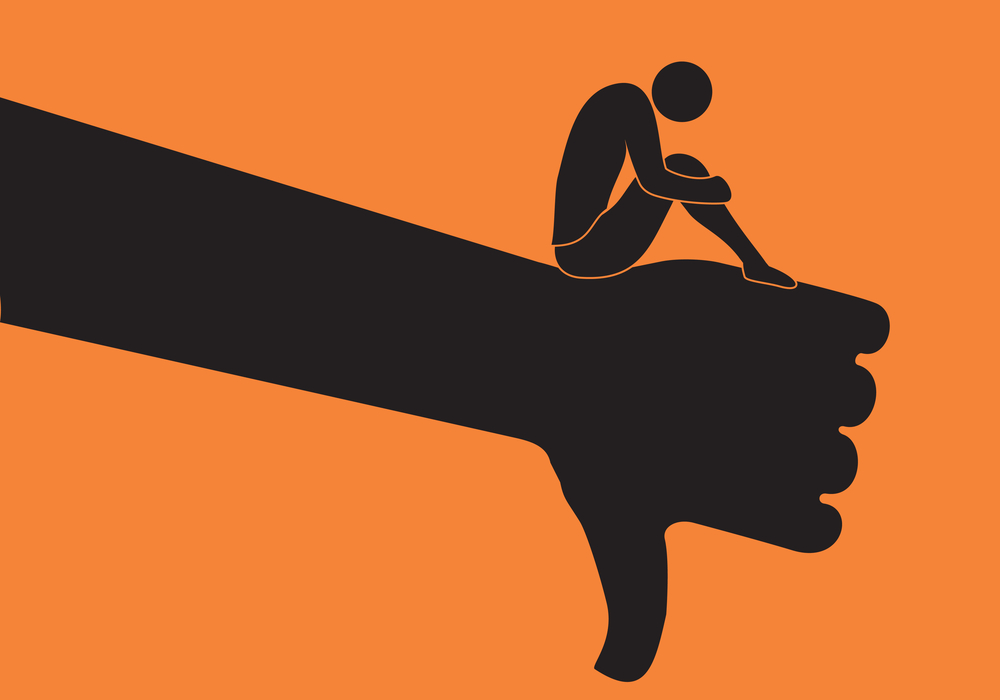A friend recently received a well-deserved job promotion. Her co-workers and new team members congratulated her and took her out for celebratory drinks along with a group of friends. At one point she went to the ladies’ room and I overhead snippets of conversation along the lines of “She should have gotten it four years ago.” Or “What the heck took so long?” Wait, what? Cue the imposter syndrome.
Over the years I’d heard my friend’s frustration at hinting at or actually writing to her boss asking for a promotion and being ignored, but I hadn’t realized it was common knowledge in her workspace that she was being ignored instead of appreciated. What I’d also noticed was the fact that the longer my friend went without receiving a promotion, the more she began to doubt her abilities. So much so that the morning she was due to start her new gig, she called me in a panic saying she knew she was going to fall on her face.
Mikaela Kiner, HR veteran and author of the forthcoming book Female Firebrands: Stories to Ignite Change, Take Control, and Succeed in the Workplace, says, “Imposter syndrome creates an invisible fence that prohibits advancement.” More than that, “Imposter syndrome makes it difficult for women to support one another, transcend differences, and truly connect. Let that sink in for a moment—by doubting our greatness, we give up the ability to connect with those around us.”
So, are women truly more susceptible to imposter syndrome than men? “While approximately 70% of people experience imposter syndrome, white women are more impacted than men, and women of color even more so,” shared Kiner. “The reason is that society reinforces feelings of self-doubt in underestimated populations.”
And it isn’t just the Mad Men world that reinforces that self-doubt. “Consider the workplace, which was designed by and for men. The majority of CEOs, board members, and decision-makers are men,” said Kiner. “When women don’t see themselves in those roles, they are more likely to question whether they are capable and if they truly belong at the table.”
Things change slowly, but change is coming. Lisa Lutoff-Perlo, President and CEO, of Celebrity Cruises promoted Captain Kate McCue to captain making her the industry’s first-ever American female Captain. In 2017, under Lisa’s leadership, Celebrity made history again appointing Captain Nathaly Alban, the first female captain of a cruise ship in the Galapagos. Additionally, for the first time in cruise industry history, female bridge officers are being openly recruited from a West African country through a new Celebrity Cadet Program in partnership with RMU.
With the announcement, the brand welcomed, RMU Cadet Nicholine Tifuh Azirh, who joined the bridge team onboard Celebrity Equinox in 2017 and has since been growing with the company. But for every company that is open and inclusive, “There are still companies and teams who only want one woman–two is too many!” Kiner shares. “That creates a scarcity mentality and competition among women, making it even harder to succeed.”
So how can you not doubt your greatness when faced with external (or internal) critics?
Kiner shared three things you can do to help reduce your feelings of imposter syndrome and talk yourself down.
Reject those labels (after you create them, that is!): Recognize the thoughts and feelings of self-doubt that you experience and label them. You may not be able to prevent thinking you’re not good enough, but you can consciously reject that thought when you catch yourself.
Keep reminding yourself: “Use data to remind yourself how capable and accomplished you really are. Have the facts ready including your degree, jobs you’ve held, and awards
you’ve received,” Kiner recommends. Great idea. I’m about to hang a corkboard over my desk with printouts of raves from clients past and present.
Practice your mantra: “Even Michelle Obama experiences imposter syndrome.” Kinder shared. “When she does, she tells herself ‘I am good enough.’ Believing in yourself goes a long way toward boosting your own self-confidence.”
Kiner added that she loves “watching women help other women recognize and power through feelings of self-doubt. While it can be difficult to spot your own imposter syndrome, it’s relatively easy to see it in others. If you see your friend, colleague, or daughter questioning herself you can be the one to hold up a mirror and remind her how accomplished she really is.”
Originally published on Ladders.
Sign up to receive daily news, inspiration, and advice on how to master work and life from Ladders.
Follow us here and subscribe here for all the latest news on how you can keep Thriving.
Stay up to date or catch-up on all our podcasts with Arianna Huffington here.


